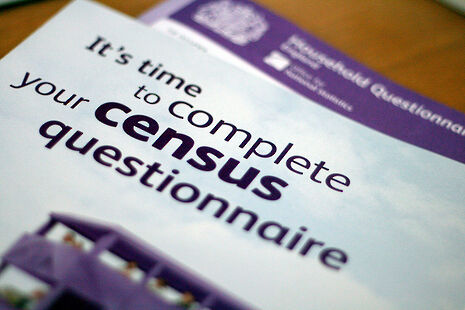Identity isn’t just black and white
Form filling is second nature to most of us, but Anita Datta askes whether we ever pause to think just how often we are pigeonholed

“Applying for a job, and I’ve been asked for my religion and sexuality… Is that normal!?” came the text at 00:44 in the morning. My answer: “increasingly.”
In this, the so-called ‘information age’, we are all quite used to the tedious, necessary, but peculiarly uncomfortable experience of filling out forms. Disciplined over the years by the bureaucratic state and now also the private service sector, we have grown so accustomed to confessing our personal details and contact information that we seldom think twice about what exactly we are being asked and how our answers might be used or interpreted, and by whom.
What I find more extraordinary still, however, is the unchallenged assumption on the part of both form-makers and form-fillers that such forms are actually an efficient means of conveying information about people. In their unflinching categorisation, forms usually limit the possible responses of the form-filler by imposing a set of multi-choice options.
I for one have spent my life filling in forms that had ostensibly nothing to do with my ethnic or racial heritage, which at some point required me to play a game of ‘find the box we think you should be ticking’. I have often felt that my necessary selection of “Mixed – White and Indian” is misleading or irrelevant for anyone who did want to know anything about my relation to my ethnic or ‘cultural’ heritage. Consider the contrast between dual-passport-holding, Bengali-speaking me and my paler younger brother, who can’t speak a word of Bengali but can bhangra dance with the best of them.
At this point we have to acknowledge that the whole purpose of this box-ticking exercise is to try to construct a rudimentary picture of what the person doing the ticking is ‘like’, or, to put it bluntly, ‘who they are’. It takes very little reflection to come to the conclusion that such box-ticking is largely unhelpful in this regard. In fact, I find our reliance on this kind of information across all kinds of domains deeply concerning, not least because we seem to be oblivious to what our dependence upon it reveals about the way we continue to think about other people.
The only reason that multiple-choice forms still ‘work’ is because we continue to allow ourselves to make meaning out of ticked boxes, despite the known problems with this system. People who don’t fit into the boxes provided are constantly required to ‘explain’ themselves.
Despite our progressive recognition of trans* and intersex persons the majority of forms continue to impose a mandatory statement of gender, entailing a choice between ‘male’ and female’. When I recently came across such a demand at the top of a Masters application form I finally remembered to ask myself what my genitalia had to do with an application that was supposed to be about my brain.
Similarly, what does my friend’s religion or sexuality have to do with his suitability for a position in an engineering company? The unfortunate fact is that these things still have everything to do with our applications, without even confronting the thorny issue of so-called ‘equal opportunities’ surveying.
What I mean is that, although we may strive to avoid and root out racism, sexism, homophobia and so on, we continue to allow reductive categories and labels to ‘inform’ us by inferring additional possible meaning where it need not necessarily follow. Most of us, for instance, have at some time or another speculated about the sexuality of a colleague, celebrity, or stranger on the street. Even though when we do this we don’t immediately imagine what that person likes to do in the bedroom, that is ultimately what we are discussing.
Moreover, we are subscribing to the idea that the sexual acts they prefer, by extension, are discernable from their fashion preferences and whether they watch football or Sex and the City on Saturdays. Put like this, my proposition may seem absurd but it is something that, though well-meaning, almost all of us do.
I cannot offer a solution for the needs of refined bureaucracy but I feel that we need to check ourselves every time we ‘tick a box’ for ourselves or another, on paper and in daily life. If we continue to subscribe unquestioningly to the implicit meanings attached to rationalised categories we run the risk of perpetuating divisions and inequalities even as we attempt to eradicate them.
Have any views on this week’s comment pieces?
Tweet us @VarsityUK, or write in to letters@varsity.co.uk
 Comment / Plastic pubs: the problem with Cambridge alehouses 5 January 2026
Comment / Plastic pubs: the problem with Cambridge alehouses 5 January 2026 News / Uni-linked firms rank among Cambridgeshire’s largest7 January 2026
News / Uni-linked firms rank among Cambridgeshire’s largest7 January 2026 News / New movement ‘Cambridge is Chopped’ launched to fight against hate crime7 January 2026
News / New movement ‘Cambridge is Chopped’ launched to fight against hate crime7 January 2026 News / SU stops offering student discounts8 January 2026
News / SU stops offering student discounts8 January 2026 News / Cambridge businesses concerned infrastructure delays will hurt growth5 January 2026
News / Cambridge businesses concerned infrastructure delays will hurt growth5 January 2026








